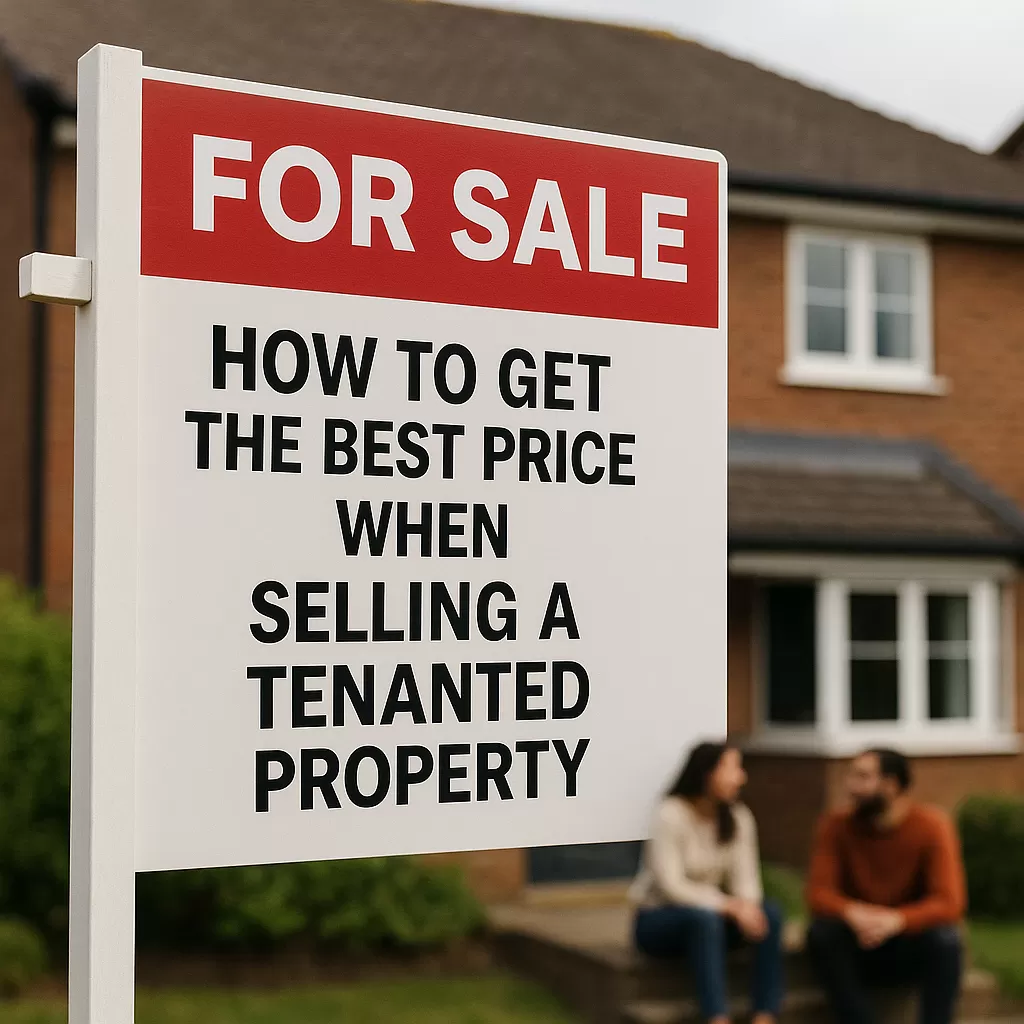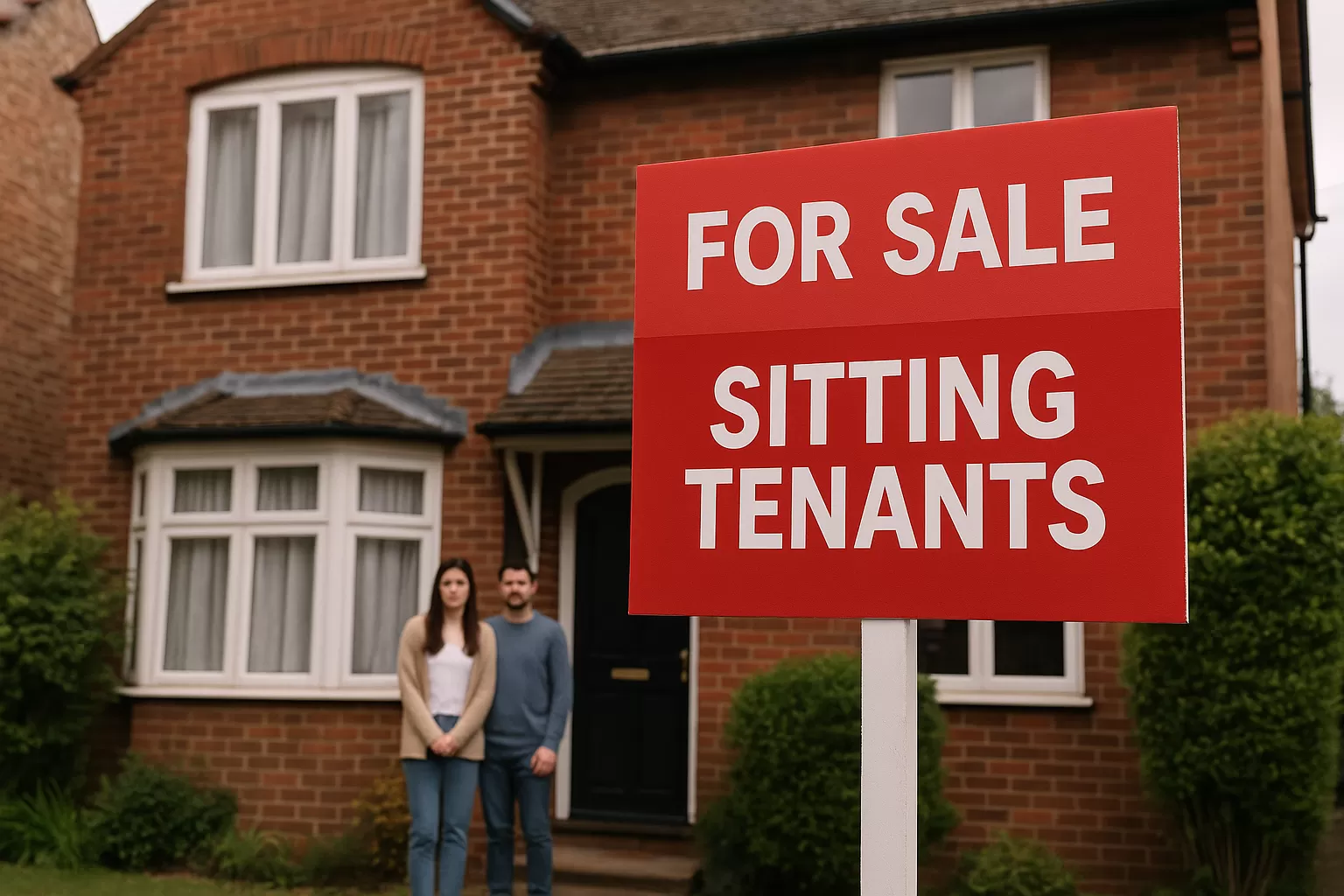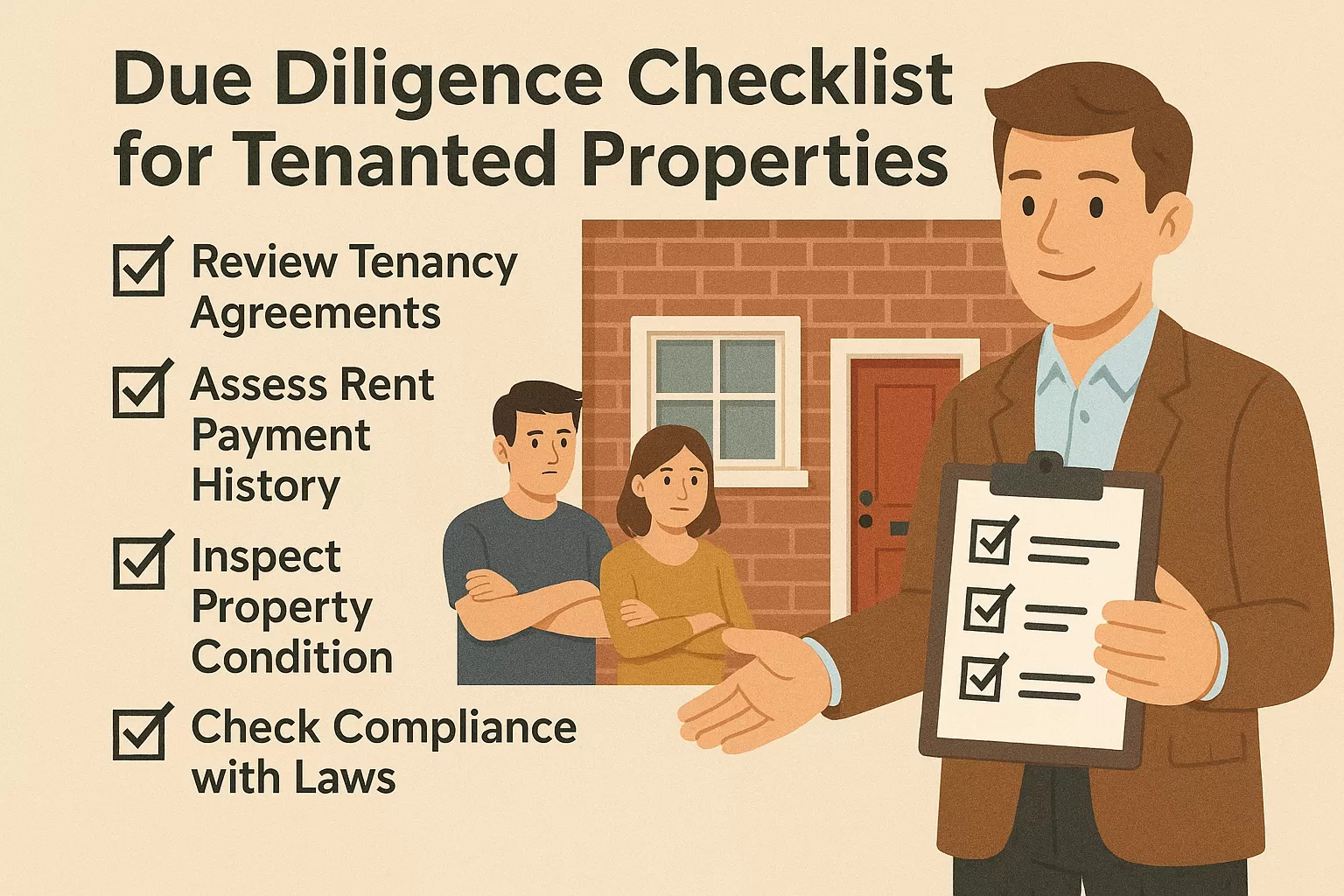Selling a property with sitting tenants presents unique challenges that can impact your final sale price. While conventional wisdom suggests that vacant properties typically command higher prices, there are strategic approaches that can help maximize the value of tenanted properties. This comprehensive guide explores proven strategies for achieving the best possible price when selling property with sitting tenants, whether you’re targeting investors or considering alternative sales approaches.
Understanding the Tenanted Property Value Equation
Before implementing value-maximizing strategies, it’s essential to understand the factors that influence tenanted property values.
The Tenancy Discount Factor
Properties with sitting tenants typically sell for less than vacant equivalents for several reasons:
- Reduced buyer pool: Only investors can purchase, excluding owner-occupiers
- Perceived complications: Concerns about problem tenants or management challenges
- Financing limitations: Some mortgage lenders restrict loans on tenanted properties
- Renovation constraints: New owners cannot immediately update or reconfigure the property
- Control issues: Buyers must inherit existing tenancy terms and conditions
This “tenancy discount” typically ranges from 10% to 30%, depending on tenancy type, tenant quality, and market conditions.
Value-Enhancing Tenancy Characteristics
Not all tenancies impact value equally. Properties with these characteristics typically command higher prices:
- Strong payment history: Tenants with perfect payment records
- Long-term tenants: Established occupancy with demonstrated stability
- Professional tenants: Higher-income occupants with stable employment
- Below-market rent: Potential for future rental increases
- Well-maintained property: Tenants who care for the property
- Minimal landlord involvement: Low-maintenance tenancies
Strategic Approaches to Maximize Value
Optimize Tenancy Documentation
Complete, organized documentation builds buyer confidence and supports higher valuations:
- Comprehensive tenancy agreements: Ensure all terms are documented
- Payment records: Compile a complete history of on-time payments
- Inspection reports: Provide evidence of regular property inspections
- Maintenance records: Document responsive maintenance and tenant care
- Tenant references: Include employment verification and previous landlord references
- Compliance certificates: Ensure all safety certificates are current and accessible
Professional presentation of these documents signals a well-managed investment and justifies premium pricing.
Address Tenancy Issues Before Marketing
Resolving problematic aspects of existing tenancies can significantly enhance value:
- Rent arrears: Settle any outstanding payment issues
- Tenancy term clarity: Ensure fixed-term or periodic status is established
- Maintenance backlog: Address any deferred maintenance issues
- Boundary disputes: Resolve any ongoing disagreements
- Unauthorized alterations: Formalize any tenant modifications
- Subletting concerns: Address any unauthorized occupants
Buyers pay premiums for clean, problem-free tenancies without lingering issues.
Consider Tenancy Restructuring
 Property shown with tenants in residence.
Property shown with tenants in residence.
Strategic modifications to existing tenancy arrangements can enhance value:
- Rent reviews: Implement appropriate increases to market rates before selling
- Tenancy renewals: Extend fixed terms for desirable tenants
- Lease amendments: Update outdated or ambiguous terms
- Service charge adjustments: Ensure appropriate cost recovery mechanisms
- Break clause modifications: Add flexibility that might appeal to new owners
- Mutual agreements: Document any verbal understandings or arrangements
These adjustments can transform an average tenancy into an attractive investment feature.
Implement Strategic Property Improvements
Even with sitting tenants, specific improvements can enhance value:
- Exterior upgrades: Enhance curb appeal without disturbing tenants
- Common area improvements: Refresh hallways, entrances, and shared spaces
- Energy efficiency upgrades: Implement improvements that reduce operating costs
- Safety enhancements: Update fire safety systems and security features
- Scheduled maintenance: Complete routine maintenance like exterior painting
- Tenant-approved upgrades: Coordinate improvements with tenant cooperation
These enhancements demonstrate property care while respecting tenant occupancy.
Develop Investor-Focused Marketing
Targeted marketing that highlights investment benefits can attract premium buyers:
- Yield calculations: Present current and potential returns
- Tenant profiles: Showcase quality tenants (with appropriate privacy considerations)
- Management simplicity: Emphasize low-maintenance aspects
- Growth potential: Identify opportunities for future value enhancement
- Comparative analysis: Show advantages versus other investment options
- Future development potential: Highlight long-term possibilities
Marketing that speaks directly to investor priorities attracts buyers willing to pay more for quality tenanted properties.
Targeting the Right Buyers
Investor Buyer Categories
Different investors value tenanted properties differently:
- Portfolio landlords: Often value stable, hassle-free additions to existing holdings
- First-time investors: May prefer established tenancies to avoid initial void periods
- Value-add investors: Look for properties with below-market rents or improvement potential
- Institutional investors: Seek larger properties or multiple units with professional tenants
- Family office investors: Often prioritize long-term stability over immediate returns
Identifying and targeting your property’s most appropriate investor type can significantly impact the achieved price.
Direct Sale to Specialized Buyers
For specific tenanted properties, specialized property buyers may offer compelling value:
- Immediate purchase capability: No marketing delays or financing contingencies
- Tenant situation expertise: Experience with all tenancy types and situations
- Problem-solving approach: Solutions for complicated tenancy scenarios
- Certainty of completion: Elimination of buyer financing or survey risks
- Simplified process: Reduced transaction costs and management requirements
These buyers can sometimes offer better value than the open market, particularly for properties with complicated tenancy situations or those requiring quick sales.
Valuation Strategies for Different Tenancy Types
Assured Shorthold Tenancies (ASTs)
- Selling property that has a sitting tenant.
Most private residential tenancies fall under this category:
- Fixed-term ASTs: Value typically reflects remaining term length and tenant quality
- Periodic ASTs: Generally more flexible for buyers, potentially commanding better prices
- Valuation approach: Typically 10-15% below vacant possession value for quality tenants
- Value enhancement: Clear documentation of tenant quality and payment history
Assured and Regulated Tenancies
These offer stronger tenant protections and typically sell at larger discounts:
- Assured tenancies: Limited grounds for possession, typically valued at 20-30% below vacant possession
- Regulated tenancies: Strong tenant protections, often valued at 30-50% below vacant possession
- Valuation approach: Based primarily on investment yield rather than property value –
- Value enhancement: Demonstrating any potential for eventual vacant possession
Commercial Tenancies
Commercial tenanted properties follow different valuation principles:
- Lease length impact: Longer remaining terms typically enhance value
- Covenant strength: Tenant financial stability significantly affects value
- Rent review provisions: Upward-only reviews enhance investment appeal
- Valuation approach: Primarily yield-based, reflecting security and growth potential
- Value enhancement: Demonstrating tenant covenant strength and lease quality
Presentation Strategies to Enhance Perceived Value
Physical Presentation
Even with sitting tenants, presentation matters:
- Exterior condition: Ensure the building exterior and grounds are well-maintained
- Communal areas: Clean and refresh spaces accessible without disturbing tenants
- Permitted access areas: Coordinate with tenants to present accessible rooms well
- Virtual enhancements: Consider digital staging to show potential alongside current reality
- Professional photography: Skilled photographers can maximize appeal despite tenant occupancy
Financial Presentation
How you present the numbers significantly impacts perceived value:
- Transparent income statements: Clear documentation of all revenue
- Normalized expense reporting: Presenting typical rather than exceptional costs
- Return calculations: Multiple metrics, including yield, ROI, and capital growth
- Comparison analysis: Benchmarking against similar investments
- Future projections: Realistic scenarios for income growth
Narrative Development
The story you tell about the property shapes buyer perception:
- Tenant success stories: Highlighting positive tenant relationships
- Management ease: Emphasizing low-intervention requirements
- Problem-free history: Documenting smooth operation and minimal issues
- Future potential: Painting a picture of continued stability or growth
- Owner rationale: Explaining sale reasons unrelated to property quality
Timing Considerations for Maximum Value
Market Cycle Timing
Property market cycles affect tenanted property values:
- Rising markets: Smaller discounts for tenanted properties as investors compete
- Falling markets: Tenanted properties may outperform as income security gains importance
- High interest rate environments: Established tenancies become more valuable as financing costs rise
- Low supply periods: Tenanted properties command better prices when alternatives are scarce
Tenancy Cycle Timing
The current stage of tenancy can impact achievable price:
- Post-rent review: Selling after implementing appropriate increases
- Early in fixed term: Offering buyers maximum security of income
- After property improvements: Capturing value from recent enhancements
- During a strong rental market: When rental demand supports optimistic projections
The Direct Buyer Alternative
 Selling home with tenants still living there.
Selling home with tenants still living there.
For landlords seeking to maximize net proceeds rather than headline price, specialized tenanted property buyers offer distinct advantages:
- No marketing costs: Eliminating agent fees and advertising expenses
- Reduced legal fees: Simpler transactions with experienced buyers
- Continued rental income: No void period during marketing
- Certainty of completion: Eliminating failed transaction risks
- Speed of transaction: Converting property to cash more quickly
- Simplified process: Reducing management time and stress
Accounting for these factors, the net financial outcome can sometimes exceed traditional sales approaches, particularly for properties with challenging tenancy situations.
Conclusion
Selling a property with sitting tenants doesn’t necessarily mean accepting a significant discount. Landlords can maximise the value of their tenanted properties by understanding the factors influencing their values, implementing strategic enhancements, targeting appropriate buyers, and effectively presenting the investment opportunity.
For properties where traditional marketing may be challenging due to tenant circumstances or property conditions, specialized buyers offer an alternative route that can sometimes deliver better overall financial outcomes when all costs and factors are considered.
Whether pursuing a traditional marketing approach or exploring direct sale options, the key to maximizing value lies in thorough preparation, strategic presentation, and targeting the right Property buyers for your specific tenanted property situation.


 Property shown with tenants in residence.
Property shown with tenants in residence. Selling home with tenants still living there.
Selling home with tenants still living there.





